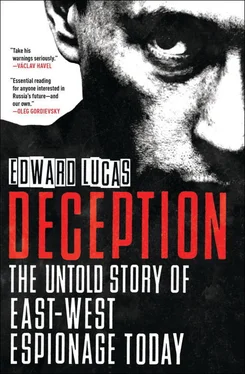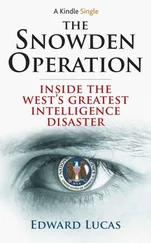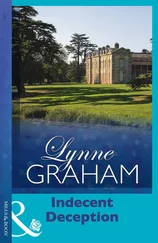A detailed explanation of the ruling circles in Russia involves weighing the importance of figures that even sophisticated observers have barely heard of, such as Mr Putin’s cousin Igor, the brothers Yuri and Mikhail Kovalchuk, or the oil-trading magnate Gennady Timchenko. Some are members of Ozero (Lake), a cooperative that built dachas in a complex on the Komsomolskoye lake near St Petersburg. A prominent member of that group is Mr Yakunin, the railways chief. Another is Viktor Zubkov, now First Deputy Prime Minister. Mr Treisman, the American academic, who is a largely sympathetic observer of Russia under Mr Putin, gives in his book some tantalising hints of the Russian leader’s business past, including the troubling and unexplained question of his membership of the advisory board of the German-registered St Petersburg Real Estate Holding Company (known by its abbreviation SPAG). In 2003 German police raided offices and homes associated with the company in an investigation about the laundering of ‘tens of millions of euros’ for a St Petersburg crime syndicate involved in ‘numerous crimes, including vehicle smuggling, human trafficking, alcohol smuggling, extortion and confidence trickstering’.
No arrests were made and the investigation fizzled out. A banker who worked with SPAG said he had no knowledge of the company’s alleged links with organised crime and had agreed to take on the company as a client because of Mr Putin’s presence on its board. Mr Putin stepped down from SPAG’s board when he became president in 2000. He has consistently denied any wrongdoing. Another SPAG advisory board member, a Liechtenstein-based financier called Rudolf Ritter, was acquitted on charges of laundering more than $1m for the Colombian Cali drug cartel, but convicted on a charge of illegally trading the company’s shares. Reports in Newsweek 28and Le Monde in 2001 and 2000 highlighted German official concerns about SPAG. Mr Putin had a close friendship with Vladimir Smirnov, head of SPAG’s St Petersburg affiliate, a company called Znamenskaya. He also was deeply involved in the lucrative municipal fuel business. Shortly after Mr Putin became president Mr Smirnov moved to Moscow, working first in the Kremlin property department, which administers the vast inheritance of the old Soviet Communist Party. He later moved to an agency that exports enriched uranium. The German journalist Jürgen Roth, in a book on this and related issues called Die Gangster aus dem Osten ( The Gangsters from the East ), alleges a systematic attempt to cover tracks and deter investigators. 29
The best explanation of how Russia really works that I have encountered is an unpublished one, compiled by the corporate intelligence service of a big Western company that has extensive dealings with Russia. These corporate spy services have many similarities to government agencies: they often employ retired spooks, are able to trade information and insights with those still inside the secret world, and are sometimes less constrained by the legal and bureaucratic restrictions that hamper public officials. This company’s analysts may have come closer than most (and certainly closer than some governments) to unravelling the truth.
According to their theory, Russia operates with two layers of governance. Mr Putin is chair of an ‘executive board’ comprising officials in public view such as Mr Sechin. But he is also a member of a shadowy ‘supervisory board’, a cabal of ex-spooks and other associates from St Petersburg days, probably only four in number. At least one of them (whose name for legal reasons I cannot mention in print) does not live in Russia. His nickname is ‘cashier’. Other members of the putative ‘four’ are even more obscure. They include a former colleague of Mr Putin from his days as a KGB officer in Dresden, and an antique dealer from St Petersburg with close ties to that city’s underworld. The four plus one are never seen in public together, though Western intelligence agencies have picked up some traces of coordination: Mr Putin and one of the four were in Sochi in 2007 just as the then Russian president fired his prime minister and appointed the unknown Mr Zubkov. Another foreign intelligence agency believes that Mr Putin made a seven-hour flight to Russia’s far east in the summer of 2008 with a member of his supervisory board on the presidential plane. An executive jet belonging to one member of the supervisory board appears to act as an air taxi for other members. In March 2008, for example, this aircraft flew to Prague to pick up Alina Kabayeva, a gymnast whose name has been linked to Mr Putin in the Russian tabloid press. It flew her to the holiday resort of Sochi in time to meet the Russian leader who arrived there on the same day.
Some theorise that the real story of Mr Putin’s rise to power is the fusion between wilier elements of organised crime in St Petersburg, such as the Tambov mafia, with the remains of the KGB in that city, and the transplantation of that formidable hybrid to power in Moscow. It is also tempting to see crime, business and intelligence as the three pillars of power in Russia. Yet such explanations are too elegant and too simple. Gangsterdom, spookdom and officialdom are intertwined, to the point that they are really just one pillar with three sides: a kind of unholy trinity.
Making sense of these swirling allegations and theories is tricky, not least because of the ever-present threats of violence and lawsuits. 30But whether by accident or design, our view of Russia is clouded by misinformation and wishful thinking; in some cases clear evidence exists of intimidation and deception. Skewed perceptions are one reason why the West’s response has been so weak to the subject of the next chapter: the regime’s activities abroad.
3
Deadly Games and Useful Idiots
Many reading this grim account may still feel that greedy, lawless and incompetent spooks are chiefly a problem for Russians. It may all be a great pity, but why should outsiders actually mind what happens inside the Kremlin’s realms? But as I will show in this chapter, the toxic combination of chauvinism and criminality is a problem for the rest of the world too. In no other country have gangsterdom and state power overlapped to such a threatening extent. The most powerful drug cartels may have high-tech communications equipment or the ability to penetrate a law-enforcement agency, or have some politicians on the payroll. But they have nothing that (yet) matches Russia’s ruling criminal syndicate’s capabilities. It has almost limitless money, global geographical scope and the full armoury of state technical and logistical resources, from spy satellites to submarines, giving unprecedented capabilities in snooping and manipulation. Russia’s world-class hackers, for example, work sometimes in government, sometimes under official protection and sometimes entirely in their own criminal interest. 1Russian dirty money and underhand business practices taint and corrode the financial systems, business cultures and politics of the countries they touch. As Don Jensen, a stalwart American critic of the regime, points out, Russia’s main export is not oil and gas. It is corruption. 2
Though officials do not speak about this much in public, they worry a lot about it in private. A cable from the American embassy in Madrid in August 2010 (now available on WikiLeaks) termed Russia a ‘virtual mafia state’. 3It stated baldly that Russian intelligence agencies were using mafia bosses to carry out criminal operations such as arms trafficking. It highlighted the secret support and protection that Russian intelligence in Spain provides for gangsters, who in return work ‘as a complement to state structures’ to carry out tasks that the Russian government could not be publicly linked to. The cable cited gun-running to Kurdish separatists in Turkey and also the mysterious case of the Arctic Sea cargo ship, hijacked in 2009 in a complex tale that probably involved smuggling elements of Russia’s S-300 air defence system to Iran. 4
Читать дальше












